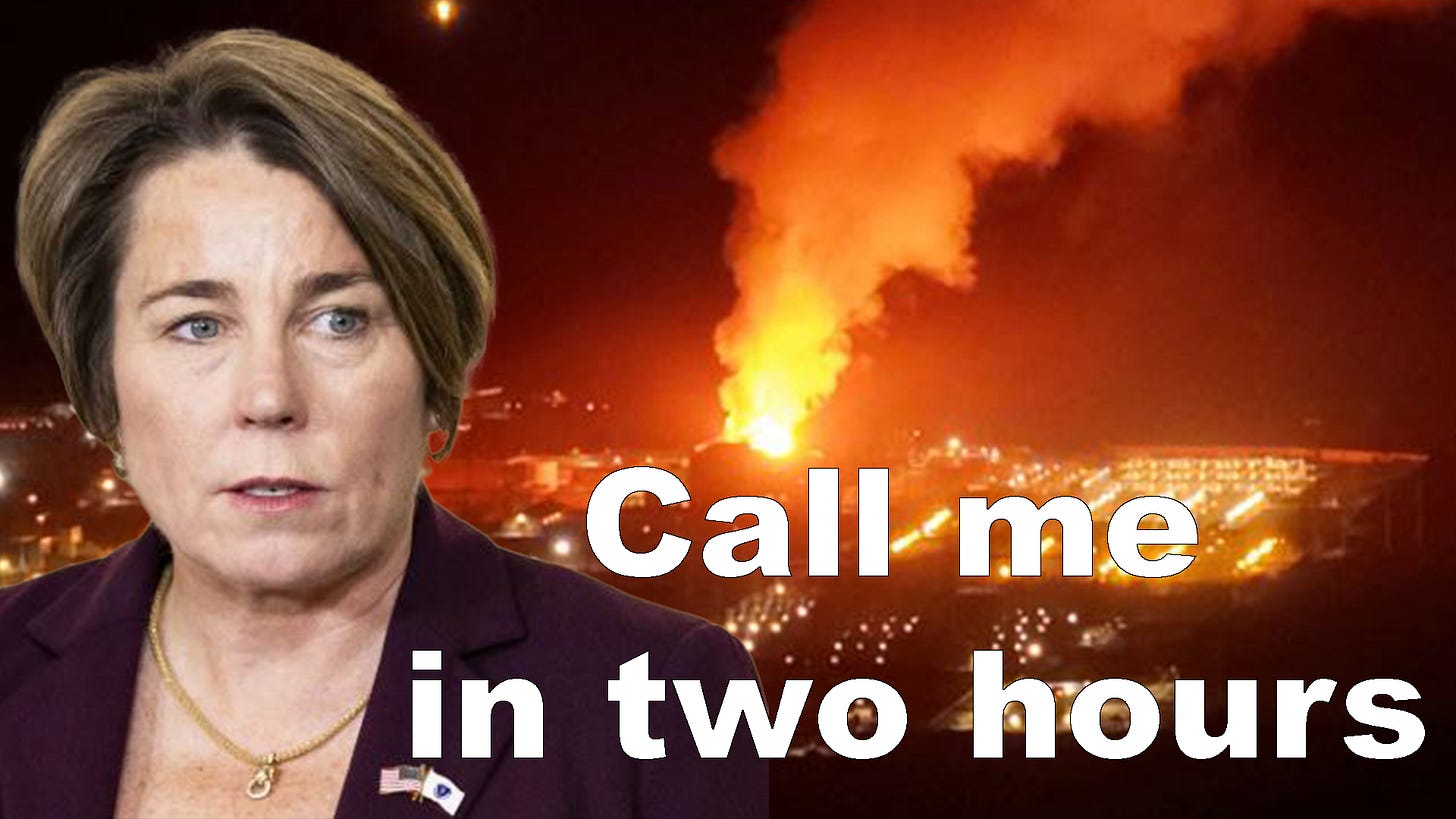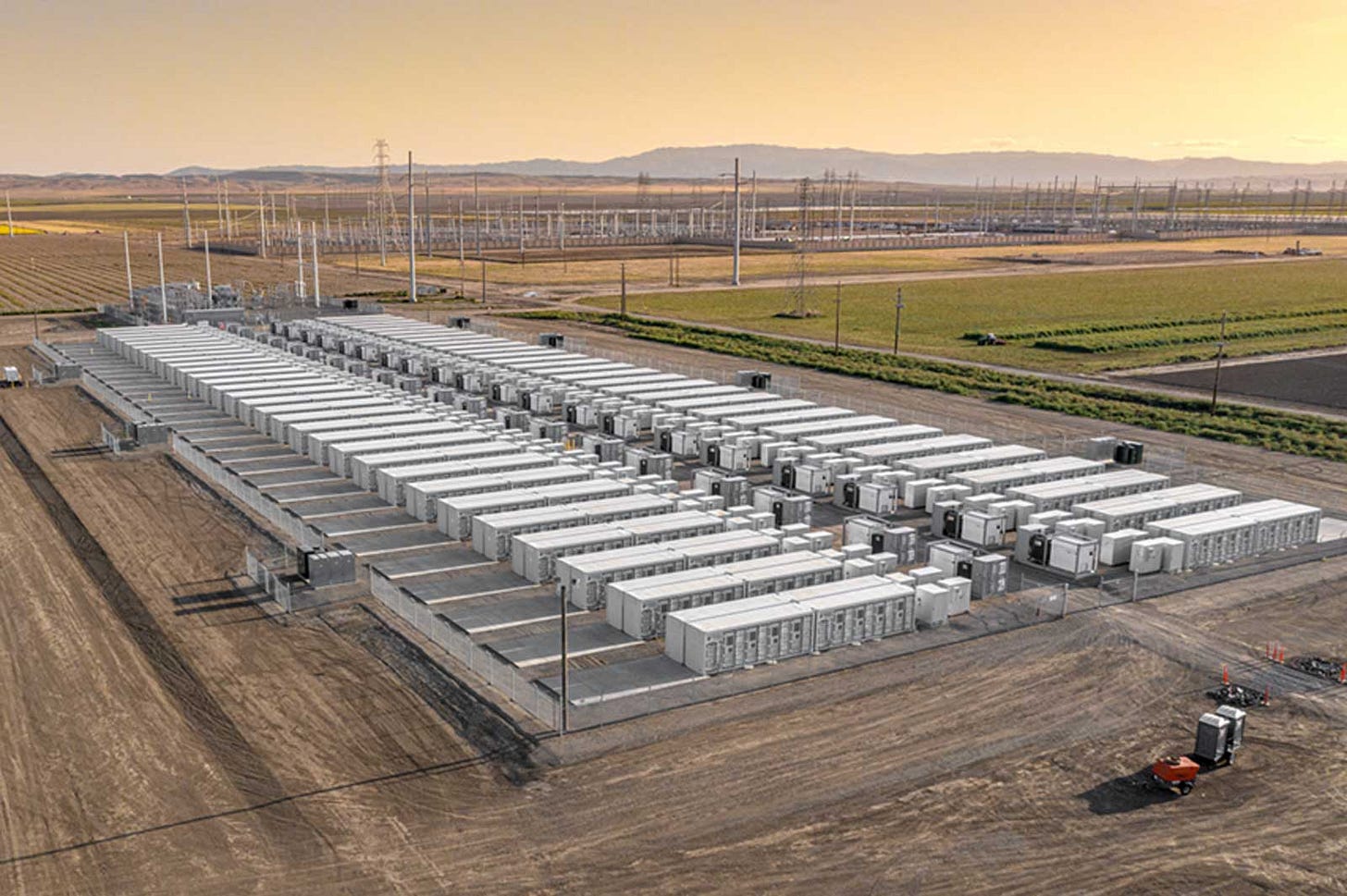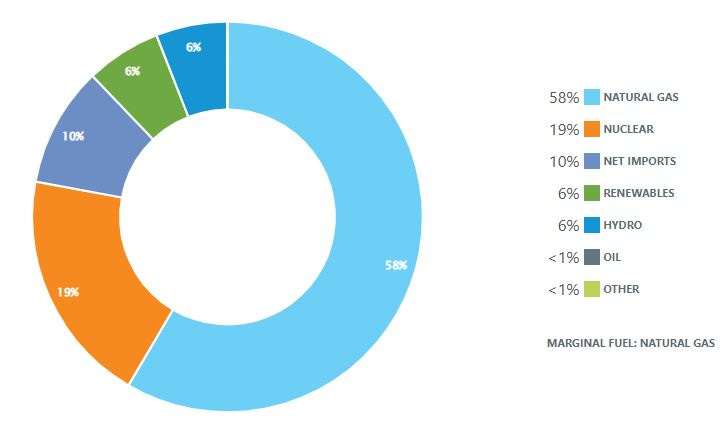Healey: After calling 911, battery storage facilities have two hours to contact state officials
Healey wants to replace fossil fuel “peaker” power plants by 2050
The Healey-Driscoll administration issued guidelines last week that allows battery energy storage operators to wait up to two hours before calling the state’s emergency response hotline after a serious hazardous waste spill or air release which triggered the facility operator to call the local fire department.
Environmental and health hazards from battery energy storage systems include “environmental contamination, including air contamination from the fire plume and possible subsequent deposition to land and water, contamination from suppression water runoff, and other potential environmental discharges from burned materials,” MassDEP wrote in official guidance issued last week.
The fire risk at battery energy storage sites has declined considerably in recent years as more locations have come online, according to the Electric Power Research Institute.
But in January 2025 the Moss Landing Power Plant, one of the world’s largest battery storage plants suffered a massive fire and 1500 people were evacuated.
Some watchdogs like Mass Fiscal have questioned the financial viability of large scale battery energy storage systems:
“Even a 40 MW project would mean about 40 tractor-trailer sized battery containers. At the smaller end, the state could see more than three dozen such projects scattered across communities. And as towns are discovering, the new law makes it harder for locals to stop them,” Mass Fiscal cautioned in a Herald op-ed yesterday.
MassDEP guidance specifies: “In the event of a fire or spill at a BESS facility, the local fire department should be called immediately. After the local fire department has been notified, MassDEP’s Emergency Response must be notified via the ER Hot Line within 2 hours of a release or spill of oil or hazardous materials that meet MassDEP’s 2-hour reporting thresholds requirements.”
According to the Healey administration battery energy storage systems are a critical infrastructure component due to the unreliability of wind and solar energy sources:
“are important for the Commonwealth to meet its decarbonization goals. The Global Warming Solutions Act, as amended by the 2021 Climate Roadmap Act requires Massachusetts to reach economy wide, Net Zero greenhouse gas emissions by 2050…Solar and wind are key to meeting our decarbonization goals in a cost-effective manner. However, they are intermittent resources that only generate power when the sun is shining or the wind is blowing.”
“Without energy storage in place during periods of high electricity demand where there are limited resources generating electricity, fossil fuel plants known as ‘peaker’ plants must come online. Peaker plants, when used, are typically large emitters of both GHG and other emissions that negatively impact local air quality. The ability for energy storage to displace peaker plants is critical for Massachusetts to meet Net Zero by 2050.”
On Monday August 25, 2025 at 9:02PM natural gas - a fossil fuel “peaker” source - accounted for 58% of all electricity supply in New England.




